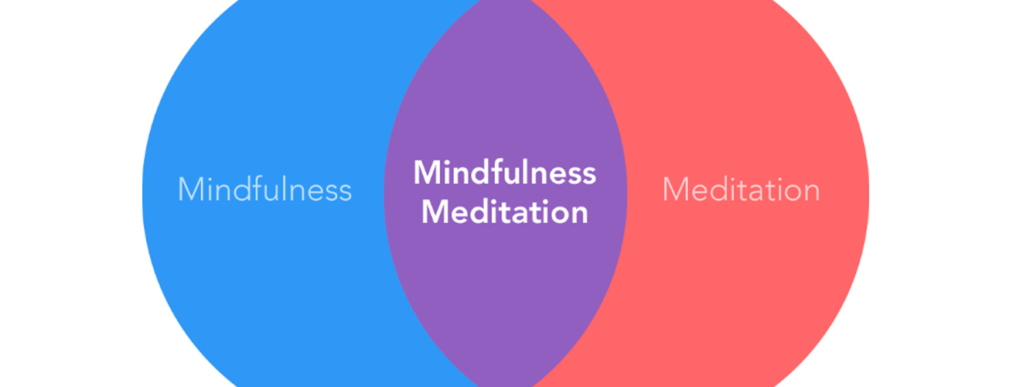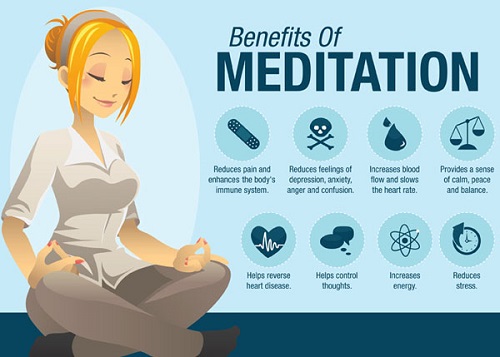
HOW TO STAY BALANCED AT WORK: mindfulness vs meditation
If achieving work-life balance is a top goal for many busy people around the world, then why is it so hard to reach?
We hear terms almost daily about mindfulness training and mediation, but what does it all mean? And does it even work?
The answer could lie in the fact that many people collapse mediation and mindfulness together. But they don’t fully understand their place in achieving a less stressful life.
Let’s break down the differences & benefits of Practicing mindfulness vs meditation so you can get started today.
As a practitioner of both for many years, I can say unequivocally that the benefits of each can produce some incredible results both personally and professionally but understanding the subtle and not so subtle nuances can make the difference between a calming moment and a storm of confusion.
**** Mindfulness
Mindfulness is defined as being aware of the here and now and of what’s happening outside the self. When one is aware, you can become free of things that create emotional stress such as regrets, judgments and anxieties. To be mindful means to live in the moment; to go through life as if it’s the first time; and to accept the things that come your way without worrying and stressing too much.
- Here’s a great resource on how to practice at work.

**** Meditation
Meditation is giving yourself, especially your body, a deeper kind of rest through mastering the art of letting go and surrendering everything that fills the mind. This way, healing comes to the body as it gains the rest necessary for it to keep up. All these occur as the body approaches the conscious state. Meditation is also called a moment of deep and restful kind of waking that helps people be aware and eventually achieve inner peace as the troublesome noise of the mind is lessened.
- Here’s a great resource on how to practice at work.

**** Bringing It All Together
Meditation helps you achieve peace from within vs. Mindfulness which helps you be at peace with your surroundings and external factors. They are two constraining things that have a diverse explanation and purpose. Both meditation and mindfulness are rooted in ancient Buddhism, but meditation is the larger term that encompasses mindfulness amid other techniques. According to one article, mindfulness expert Elisha Goldstein, Ph.D., author of The Now Effect – stated that the confusion can be contributed to the following:
- One of the most well-known types of meditation is mindfulness meditation.“Mindfulness is basically just being aware, and can be practiced both informally and formally—which is what many people don’t understand,” says Goldstein. “When you’re practicing it informally, that means that you’re simply attempting to be more aware in everything that you do—and that mentality can be infused into pretty much anything. But the formal practice of mindfulness is mindfulness meditation.”
- Here’s a great resource on how to practice at work.
And in case you’d like to do a little further reading on the subject, here are some of my favorite resources:

Final thoughts on mindfulness vs meditation: The main reason people get confused may in large be in part due to the varying definitions of each and the sources they are derived from. In reality, they are re two sides of the same coin — they complement each other, while potentially overlapping. Mindfulness is actually under the umbrella of meditation. Mindfulness is not about stressing and thinking hard; and meditation is not about turning off the mind. They are both designed to provide you with an opportunity to be happier and less stressed. Namaste, now please go mindfully eat your lunch and get back to work.
For either path you’d like to pursue more:
The floor is yours: Which increases performance in the workplace mindfulness vs meditation?
With Leadership,
Joshua
www.JoshHMiller.com

Joshua Miller is a creative leader and impactful executive coach.
His career spans both the advertising world and the world of leadership. In advertising, he was the creative lead, responsible for the campaign strategy for Fortune 100 brands. Today, he is an innovator. He’s supporting the executive development and change management for many of the same companies.
Joshua studied at Syracuse University, NYU and Stanford. He combines that background with his deep knowledge of organizational behavior, performance and change management. He focuses on the analysis, design, development, delivery, and evaluation of scalable and global talent development solutions programs.
Joshua is a Master Certified Coach. He trained with the International Coaching Federation and CTI (The Coaches Training Institute).
To learn more about Mindfulness Certification and Training for Individuals and Coaches: https://inlpcenter.org/